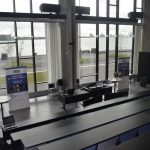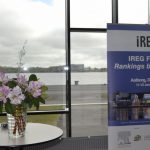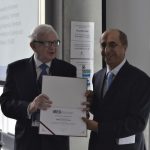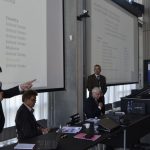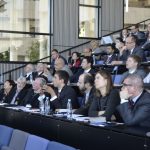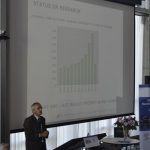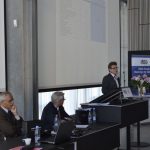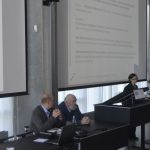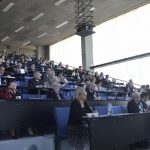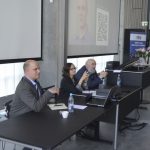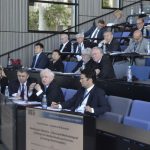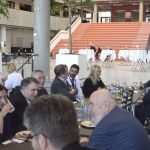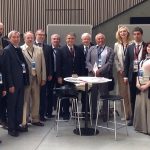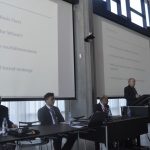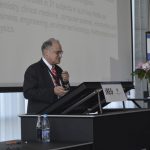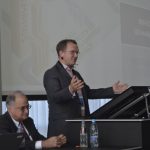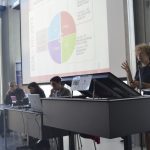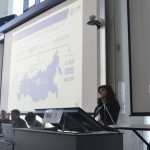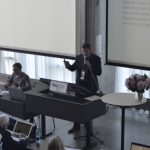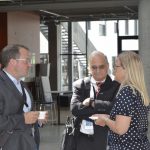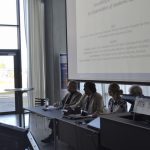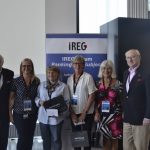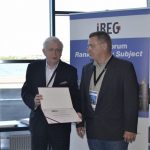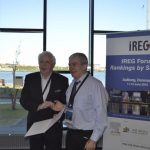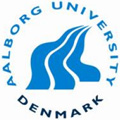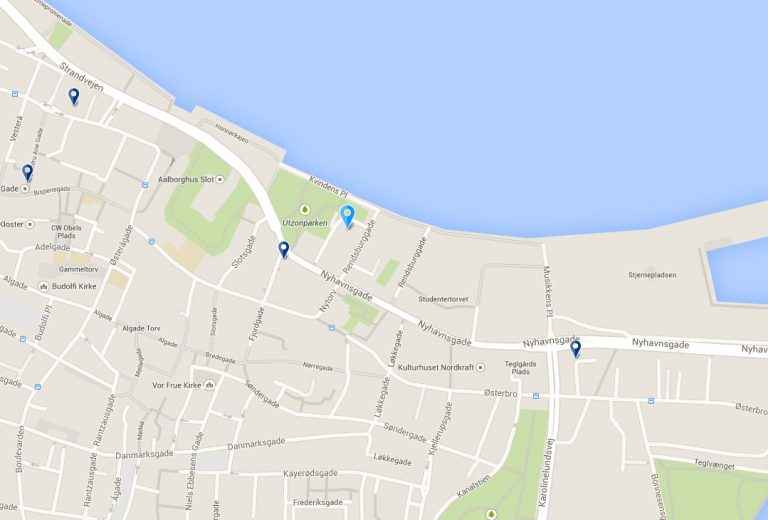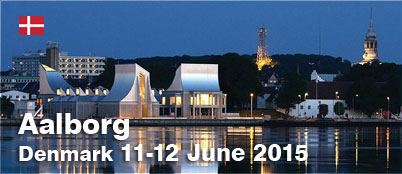
IREG Forum
Rankings by Subject
Inclusive Approach to University Performance
Invitation
Rankings by subject illustrate that many universities not visible in major academic rankings, perform remarkably well in a limited academic fields and study areas.
There is hardly an institution which can claim to perform equally well in all fields and study programs and get confirmation of this by external quality assessment such, academic rankings. At the same time a diverse institutional landscape of higher education reveals that a number of universities have a remarkable performance in a limited academic fields and study areas. Therefore, some national, global, and specialized rankings, in addition to the whole-institution assessment, prepare and publish rankings covering specific academic disciplines or study programmes.
The IREG Forum 2015, to be hosted by the Aalborg University, will take a closer look at this issue by mapping and analysing subject and discipline rankings constructed by major providers of academic rankings. The following three major groups of academic disciplines will be given special attention: – engineering, medicine and humanities and social sciences. Similarities and differences between various academic disciplines, study programs as well as global and national rankings will be discussed.
Similarly to the previous IREG conferences, the “Aalborg Forum” will provide excellent opportunity to learn about the new initiatives in academic rankings and related developments in universities and other organizations.
An important part of the program will be a presentation of the IREG Guidelines for Stakeholders of Academic Rankings.
Programme
IREG Forum
Subject and Discipline Related Rankings
For a More Inclusive Approach to University Performance
organized by:
Aalborg University
and
IREG Observatory on Academic Ranking and Excellence
11-12 June 2015, Aalborg, Denmark
[Venue: Aalborg University Create, Rendsburggade 14]
AGENDA
Wednesday, 10 June 2015
Whole day Arrival of participants
16.00 – 18.00 Executive Committee (close meeting)
19.00 – 21.00 Welcome Reception and Registration [Location: Aalborg University Create, Rendsburggade 14]
Thursday, 11 June 2015
8.30 – 9.00 Registration
9.00 – 10.00 Opening Session
Moderator: Birte Hornemann, Aalborg University, Member of the Executive Committee of IREG Observatory
Speakers:
- Inger Askehave, Pro-Rector, Aalborg University
- Jan Sadlak, President, IREG Observatory
10.00 – 11.30 First Session: Rankings for Engineering
Chair: Waldemar Siwiński, President, Perspektywy Education Foundation, Vice-President of IREG Observatory, Poland
Speakers:
- Axel Herrmann, Professor of Production Technology, University of Bremen;
CEO, Composite Technology Center Stade GmbH (Airbus subsidiary), Germany:
Educating engineering elite for the industry of new technologies – challenges for university rankings. - Frede Blåbjerg, Professor of Electrical Engineering, Aalborg University, Denmark:
The Use of Ranking in Engineering – Pros and Cons Seen from a Researcher Perspective - Mads Nygård, Professor in Computer Science, Norwegian University of Science and Technology, Trondheim, Norway;
Task Force on U-Multirank, CESAER:
Rankings of Engineering Institutions – the Way they are, and the Way they should be
Discussion
11.30 – 12.00 Coffee Break
12.00 – 13.30 Second Session: Rankings for Medicine – Criteria and Methodological Challenges for Medical Studies and Services [including clinical hospitals]
Chair: Ghislaine Filliatreau, Director, OST – Observatoire des Sciences et des Techniques, France
Speakers:
- Vincenzo Costigliola, President, European Medical Association (EMA), Brussels, Belgium:
Which Criteria for Ranking Medical Services - Jens Peter Andersen, Researcher, Medical Library, Aalborg University Hospital Denmark:
Impact of Clinical Research as a Cofounder for Medical School Research Rankings - Roger Taylor, Director of Research & Public Affaris, dr foster Ltd., United Kingdom:
Issues involved in rating quality of medical establishments [in the context of medical studies and clinical hospitals]: Experience and practices of ‘dr foster Ltd’
Discussion
13.30 – 14.30 Lunch
14.30 – 16.30 Third Session: Rankings by Subjects and Fields: Practices and Experiences of “Rankers”
Chair: Klaus Huefner, IREG Audit Coordinator, Emeritus Professor of the Free University of Berlin, Germany
Speakers:
- Gero Federkeil, Head of International Rankings, CHE-Centre for Higher Education, Vice-president of IREG Observatory, Germany:
Doing Field-based Rankings: Lessons Learned from U-Multirank and CHE-rankings - Ying Cheng, Director, the Shanghai Ranking Consultancy, Shanghai Jiao Tong University, China:
Academic Ranking of World Universities (ARWU) by Subjects and Fields: Methodologies, Challenges and Future Plans - Bob Morse, Chief Data Strategist, U.S. News & World Report, USA:
U.S. News & World Report’s 21 Subject-specific Research Performance Rankings in New Best Global Universities vs. Program Specific Rankings in U.S. News’ Best Graduate Schools - Ben Sowter, Head of Division, QS Intelligence Unit [division of Quacquarelli Symonds Limited], United Kingdom:
Rewarding and Revealing: Reflections upon Four Years into the QS World University Rankings by Subject
Discussion
16.45 – 18.45 Fourth Session: Rankings for Social Sciences and Humanities
Chair: Remus Pricopie, Rector, SNSPA – National University of Political Studies and Public Administration, Romania
Speakers:
- Roger Kain, Professor, Dean and Chief Executive of the School of Advanced Study, University of London, and Consortium of Humanities Centers and Institutes (CHCI), United Kingdom:
Humanities and Social Sciences in the UK Research Excellence Framework (REF) - Jesper W. Schneider, Danish Centre for Studies in Research & Research Policy (CFA), Denmark:
University Rankings: One Size Fits All – the Challenges of Measuring the Social Sciences and Humanities - Gunnar Sivertsen, Research Professor, Nordic Institute for Studies in Innovation, Research and Education (NIFU), Norway:
To What Extent is international Comparision Possible? Internationalization Social Sciences and Humanities - Luciana Sacchetti, Research and Technology Transfer Division, University of Bologna, Italy
Subject Rankings to Enhance Self-assessment of the Research Performance in University Departments
Discussion
19.30 – 21.30 Conference Gala Dinner
[Location: House of Music Musikkens Plads 1]
Friday, 12 June 2015
9.00 – 11.00 Fifth Session: Academic Rankings, Data Sources and Their Place in Institutional Assessment, Improvement and Benefits to Stakeholders
Chair: Maria Pilar Lostao, Vice President for International Relations of the University of Navarra, Spain
Speakers:
- Paul Wouters, Professor of Scientometrics, Director, CWTS – Centre for Science and Technology Studies, Leiden University, the Netherlands:
Do Rankings Make the World Go Round? Quality Assessment Systems and Their Effects - Serban Agachi, Professor of Process Control and Optimization, Babeș-Bolyai University in Cluj-Napoca, Member of the Executive Committee of IREG Observatory, Romania:
Academic Rankings and Institutional Improvement: Recent Experience Among Leading Universities in Romania - Guillaume Warnan, Customer Consultant, Elsevier Research Intelligence, Elsevier, the Netherlands:
Academic Rankings: The Importance (or Impact) of Data Source - Elena Chernyshkova, Deputy Executive Director, Project 5-100 Office and Victor Koksharov, Rector, Ural Federal University, Russian Federation:
Concept, First Outcomes, and Ranking Strategies of the Russian Academic Excellence Project 5-100
Discussion
11.00 – 11.30 Coffee Break
11.30 – 13.30 Sixth Session: Launching of IREG Guidelines for Stakeholders of Academic Rankings
Chair: Nian Cai Liu, Professor and Dean of Graduate School of Education, Shanghai Jiao Tong University, Vice-President of IREG Observatory, China
Panel of Stakeholders:
- Thomas D. Parker, Senior Associate, Institute for Higher Education Policy (IHEP), USA
- Zdzisław Mach, Rector’s Proxy for International Relations, Jagiellonian University, Poland
- Laerke Haestrup, the Student Society, Aalborg University, Denmark
- Mariya Fartunova, Director, Higher Education Directorate, Ministry of Education and Science, Bulgaria [subject to confirmation]
Discussion and Closing Remarks
13.30 – 13.45 Invitation to IREG-8 Conference in Lisbon, Antonio Rendas, Rector, Universidade NOVA de Lisboa, Portugal
13.45 Farewell lunch
14.15 – 16.00 General Assembly of IREG Observatory [for members of the organization]
Organizers
Organizers
- IREG Observatory on Acadmic Ranking and Excellence
- Aalborg University, Denmark
Program Committee
- Jan Sadlak, President, IREG Observatory, Co-Chair
- Per Michael Johansen, Rector, Aalborg University, Denmark
- Liu Nian Cai, Vice-President, IREG Observatory; Director, Center for World-Class Universities, Shanghai Jiao Tong University, China
- Waldemar Siwiński, Vice-President, IREG Observatory; Perspektywy Education Foundation, Poland
- Gero Federkeil, Vice-President, IREG Observatory; CHE Center for Higher Education, Germany
Organizing Committee
- Kazimierz Bilanow, Managing Director, IREG Observatory
- Birte Hornemman, Aalborg University
Accommodation
FIRST HOTEL AALBORG
Rendsburggade 5
Booking via e-mail: aalborg@firsthotels.dk.
CABINN AALBORG
Fjordgade 20
Booking via e-mail to jm@cabinn.com.
Practical information
Aalborg is an old charming port and university town in Denmark. It is easy to get there by air. There are several direct flights from Copenhagen and Amsterdam. The airport is located close to the town (only 15 min. by bus or taxi).
All the venues Aalborg University (Rendsburggade 14), Utzen Center and Music Centers and the town center are close together, in a walking distance (2-5 min walk).
Please check: http://www.aal.dk/en/
Gallery
A successful IREG Forum in Aalborg
Over 140 participants and speakers from 40 countries attended IREG Forum on Rankings by Subject held at the AalborgUniversity in the city of Aalborg in Denmark.
There had been a general consensus among the participants of the IREG Form that rankings by subject or fields of study represent a positive trend as these rankings provide a wealth of information valid for users of rankings both on national and international level. As an example how to approach a ranking by subject, the fields of engineering was discussed in detail, taking into account both academic as well as industry’s perspectives. At the IREG Forum, the IREG Guidelines for Stakeholders of Academic Rankings were presented and officially launched as a document of IREG Observatory.
